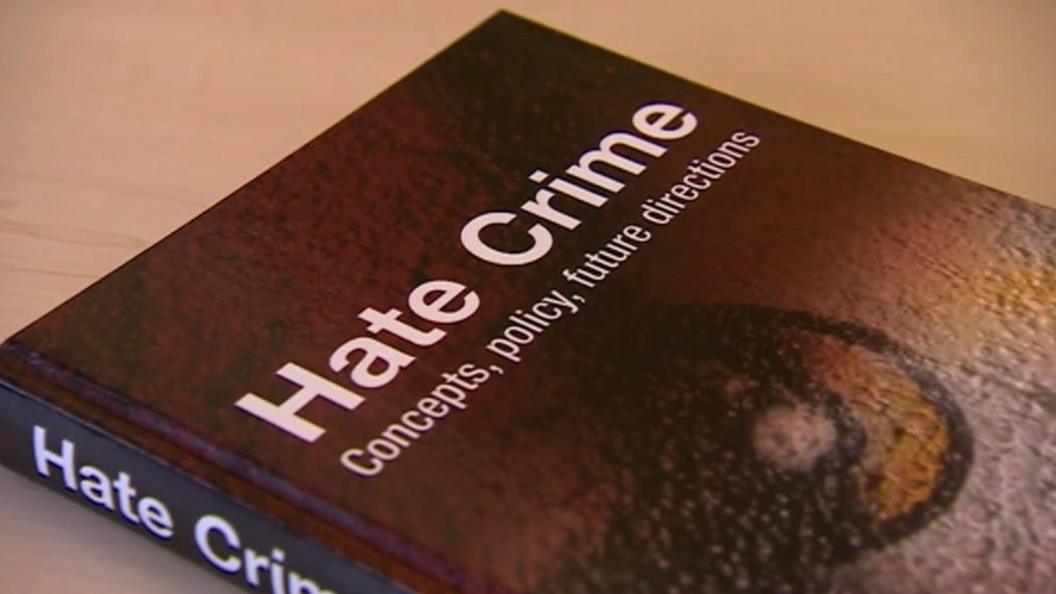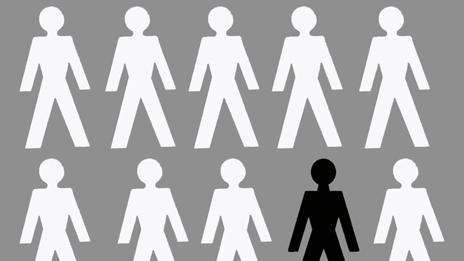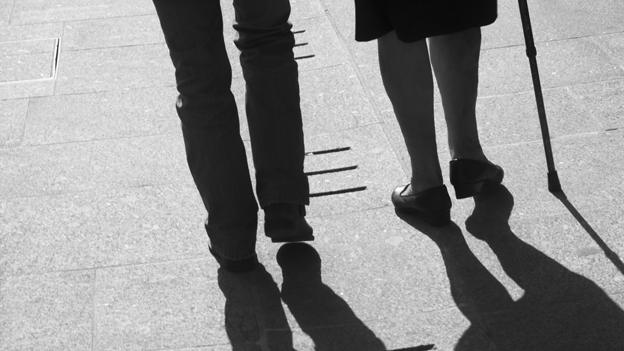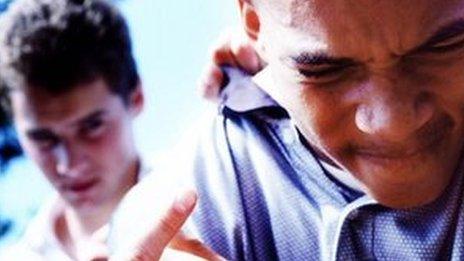'Cultural changes' needed to fight Wales' hate crime
- Published
Andrew Davies told BBC Wales how his tormenters killed his cat
Nearly 2,000 hate crimes were recorded in Wales in one year.
The 1,810 hate crimes reported in 2012-13 were just the "tip of the iceberg", said the Welsh government, as it launched a new helpline and website for victims.
Wales needs "cultural changes" in order to tackle hate crimes, said Communities Minister Jeff Cuthbert.
Andrew Davies from Swansea moved house after receiving anonymous homophobic threats for a year and a half.
Mr Davies, chief executive officer for Unity Group Wales, external, said people would push notes under his door, saying they were worried about the safety of their children "because I was gay".
He added: "It got to the point then when they actually killed my cat and sent me a sympathy card for the cat".
'Not judged'
He said the popularity of social media has made hate crime more difficult to control.
He added: "Social media is a fantastic thing when it's used properly... but it's also quite a nasty weapon of hate that is being used a lot more these days".
Mr Cuthbert will launch the new framework tackling hate crime at the Millennium Stadium in Cardiff on Monday. It will include a 24-hour helpline and website, external for victims.
It will cover all hate crimes, including race, religion, disability, sexual orientation, gender and age. Victim Support will receive £488,000 of Welsh government funding to run the scheme.
"Cultural changes are needed so that future generations can live in a Wales which is equal, fair and welcoming to people from different backgrounds and cultures," said the minister.
"We want our young people and children to grow up in a Wales where people are accepted for who they are and not judged because of the colour of their skin, their religion, their sexual orientation, their gender identity, their disability or their age."
'More windows'
Mr Cuthbert added: "My message to all victims of hate crime is that action will be taken. Hate in any form will not be tolerated. A culture where victims feel that they have to suffer in silence will no longer be tolerated."
Paul Giannasi, the National Police spokesperson for hate crime across the UK says people have a right to be treated as a victim of hate crime
The framework will be updated annually and an independent advisory group will be established later this year.
Dr Ahmed Darwish, honorary chair of the Muslim Council of Wales, said: "Anything that would encourage the community to help each other is welcome and people need to be able to do that without being intimidated, or fearing retribution.
"The point of the initiative is that people have a means of communication without fear of people looking at them.
"I think the more windows we have, the better it is."
- Published12 May 2014

- Published23 March 2014

- Published23 November 2012

- Published29 October 2013

- Published23 September 2013

- Published24 July 2013